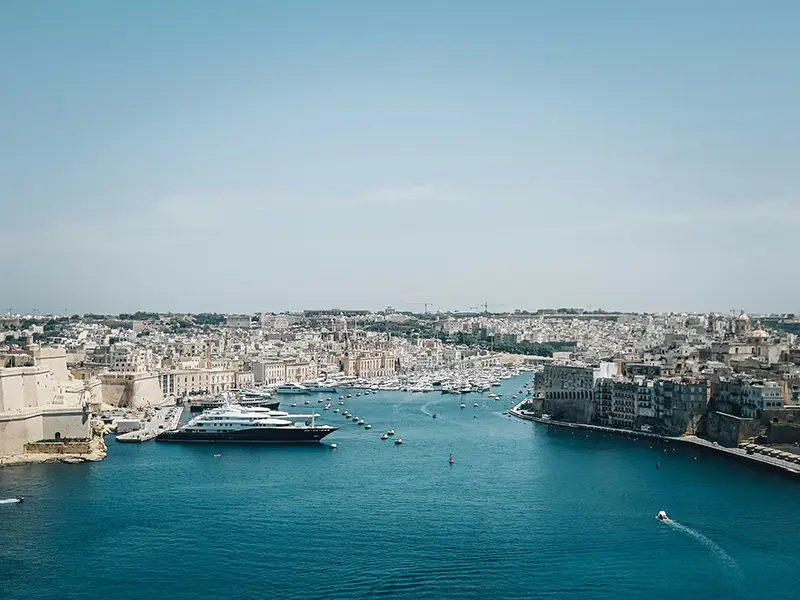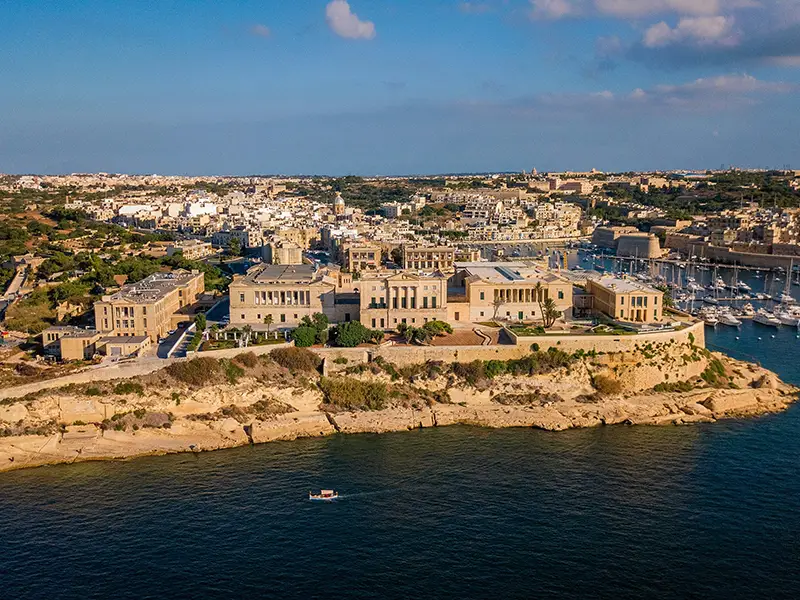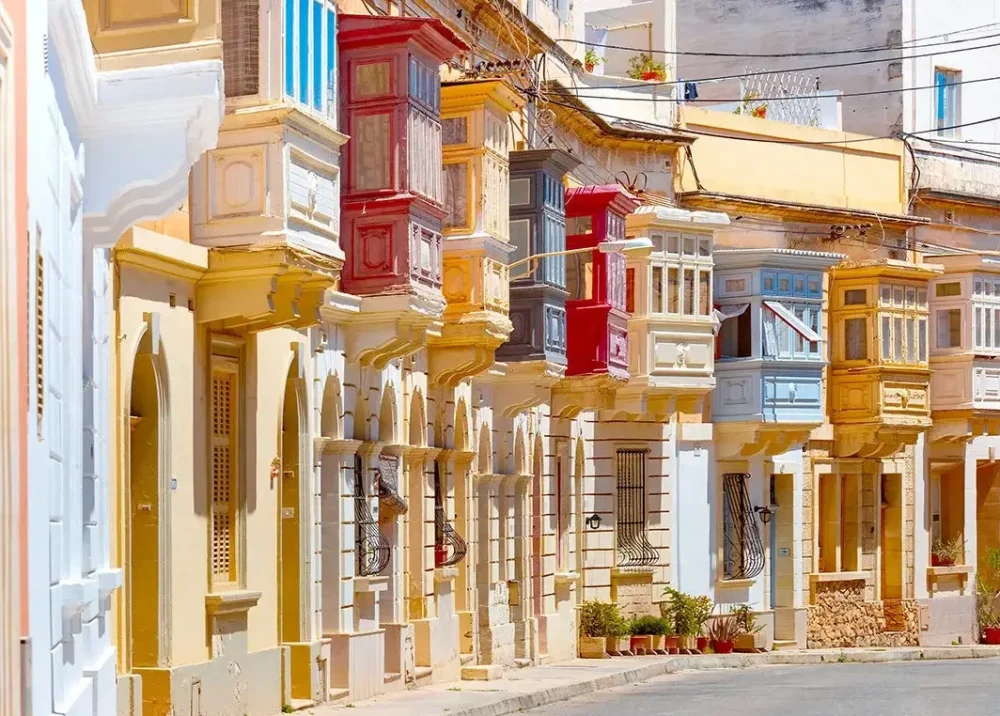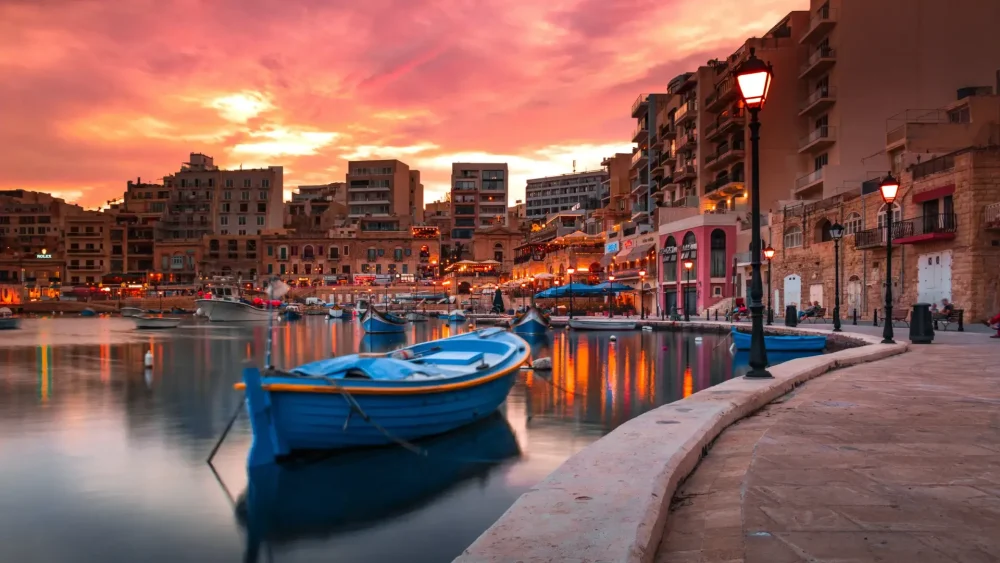Malta is not just a beautiful island, it is a bridge to a new reality, where amazing nature is combined with favourable conditions for life and business. The possibility of obtaining a Malta residence permit when buying property has become a unique chance for those who want to invest in luxury properties and at the same time ensure a comfortable life for themselves and their family in the heart of Europe. In this article we will cover everything from legal intricacies to document requirements, and more.

How to buy property in Malta and get a residence permit when buying a property in Malta
The first question that always comes up when planning a move is how much you need to invest to obtain a Malta residence permit when buying a property. The programme requires a minimum investment threshold of €300,000. But it is important to realise that this amount is only part of the cost. Which properties are suitable for the programme, what are the requirements and how do they differ in terms of price and comfort?
The average price of property in Malta can vary depending on the location and type of property. Apartments in the historic centre of Valletta cost from €350,000, while luxury villas with sea views are much more expensive. It is important to consider additional costs: registration fees (around 5%), legal fees (from €5,000), and other administrative costs.
Purchase procedure – step by step
Buying a property in Malta for the purpose of obtaining a residence permit is a process that requires careful preparation. Let’s look at it step by step:
- Choosing a property – decide what suits you best: an apartment in the city centre, a villa by the sea or a house in a quiet suburb.
- Due diligence – government services scrutinise the cleanliness of the transaction. In Malta, legal assistance is not a luxury but a necessity and the notary plays a key role in ensuring that all stages are legal.
- Signing of the sale and purchase agreement – after legal verification, the parties sign a preliminary agreement, which fixes the main terms of the transaction.
- Payment and registration – after making an advance payment of 10% of the price and having the transaction notarised, the property is registered with the relevant authorities.
Why Malta? The country offers not only excellent living conditions, but also the status of a European resident with the right to travel within the Schengen area. Immigration to Malta by buying a property is a pass to a better future.
Main advantages of obtaining a residence permit when buying a property in Malta
 The country has one of the most favourable taxation systems in the EU. This offers great opportunities for optimising personal and corporate taxes. For example, corporate income tax can be as low as 5% thanks to an efficient tax refund system. This makes Malta’s investment programme not only a means of obtaining a residence permit when buying property, but also a convenient platform for doing international business.
The country has one of the most favourable taxation systems in the EU. This offers great opportunities for optimising personal and corporate taxes. For example, corporate income tax can be as low as 5% thanks to an efficient tax refund system. This makes Malta’s investment programme not only a means of obtaining a residence permit when buying property, but also a convenient platform for doing international business.
An investor who chooses this country also receives tax benefits related to personal income. Income tax rates depend on residency status and can be significantly lower than in other EU countries.
Malta Gold Visa: more than just an investment
The Golden Visa provides not only a residence permit but also a full package of benefits. The main benefits include the right to move freely around Europe, access to a high quality medical system and the opportunity to educate children in prestigious educational institutions. Obtaining citizenship by naturalisation through the Malta Investment Programme is a further prospect after several years of residence on the island.
Conditions for obtaining a residence permit in Malta when buying a property and the specifics of the programme
Persons over the age of 18 who have a stable income and sufficient savings to support themselves and their family may apply for a residence permit. The conditions also include the requirement to have no criminal record and the need to prove sources of income. It is important that the investor can prove financial independence, which means having savings of €500,000 or more or a proven income of more than €100,000 per year.
Documents for residence permit: what you need to provide
To apply for a Malta residence permit for the purchase of a property, you must provide:
- Passport and copies of all pages.
- Certificate of income (stable income must be confirmed).
- Property documents proving the purchase of a property worth at least €300,000.
- Health insurance covering all types of treatment within the EU.
- A certificate of no criminal record.
The application process takes 3 to 6 months. After all documents have been reviewed, the investor receives a residence permit, which entitles the investor to reside in the country and travel within the Schengen zone.
Property in Malta: what to choose for your investment
The island offers different types of facilities to participate in the programme. Investors can choose from:
- Apartments in modern residential complexes with sea views.
- Historic villas and houses in old neighbourhoods such as Valletta or Mdina.
- Modern townhouses and mansions in quiet suburbs with a high level of comfort.
The average cost of apartments starts at €300,000, while villas can cost several million euros. It is important to consider that properties in prestigious areas, such as Sliema or St Julian’s, have great investment potential as rental demand is constantly increasing.
Top 5 best areas for property investment in Malta
Here’s a list of the best areas to buy square metres for residence permit purposes:

- Sliema is ideal for those who appreciate living in the centre of things, with restaurants and shops within walking distance.
- St Julian’s is the place for those who want to enjoy nightlife and entertainment.
- Mellieha – suitable for families wanting quiet and privacy.
- Valletta is a historic centre with unique architecture and a rich cultural life.
- Marsasala is a great place for those looking for more affordable accommodation with sea views and a peaceful atmosphere.
Conclusion
 Obtaining a Malta residence permit when buying a property opens the door to a European quality of life. The island offers a unique combination of a comfortable climate, a stable economy and a high standard of living. It only takes a few months to process an application and soon you can start living the dream life, enjoying all the privileges of an EU resident. It is a realistic path to higher living standards, investment and the limitless opportunities that Europe has to offer.
Obtaining a Malta residence permit when buying a property opens the door to a European quality of life. The island offers a unique combination of a comfortable climate, a stable economy and a high standard of living. It only takes a few months to process an application and soon you can start living the dream life, enjoying all the privileges of an EU resident. It is a realistic path to higher living standards, investment and the limitless opportunities that Europe has to offer.
 en
en  ru
ru  de
de  ar
ar  es
es  hi
hi  fr
fr  nl
nl  it
it  pt
pt  el
el 



